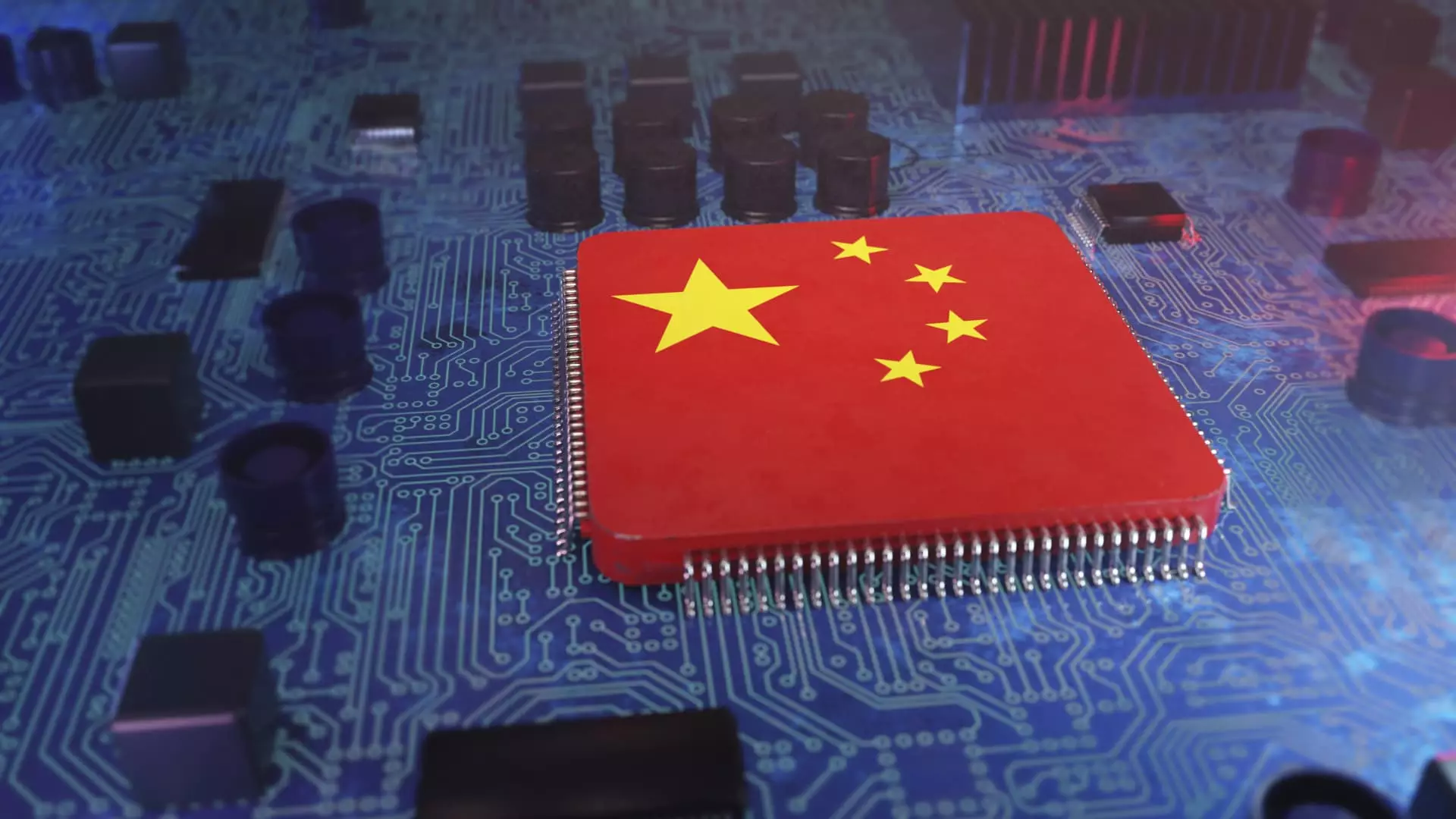In a world increasingly defined by technological advancement, the competitive landscape between the U.S. and China has entered an exciting new chapter with the rise of generative artificial intelligence (AI). As tariffs and trade tensions stir uncertainties, Chinese firms are leveraging AI not simply as a tool for efficiency, but as a strategic advantage to bolster their market positions. This innovative shift is proving to be a beacon of opportunity for Chinese companies trying to navigate through the murky waters of international economic relations.
In recent weeks, the Chinese tech arena has been buzzing with activity, heralding an era marked by groundbreaking AI innovations. Companies like Kuaishou, Tencent, and Baidu are not just participating in AI; they are redefining their industries. For instance, Kuaishou’s AI-powered video generation tool has already amassed substantial revenues, demonstrating that the monetization of AI is not just a future prospect—it’s happening now. Similarly, Baidu’s new AI tools that allow users to create websites or simple games with mere conversational prompts highlight the democratization of technology; inhibiting traditional coding barriers could redefine how digital products are developed.
Industry-Specific Applications of AI
The momentum around AI isn’t just about flashy applications; it’s about practical, industry-specific innovations. Take DeepRoute.ai, a trailblazer in autonomous delivery systems, which is on the cusp of rolling out a voice-command-operated delivery network. Such initiatives underscore a shift from theoretical AI applications to real-world problem-solving. Maxwell Zhou, the company’s CEO, indicates that China’s robust manufacturing sector provides a fertile ground for ‘physical’ AI applications, essentially bridging the gap between AI and tangible manufacturing practices.
This integration of AI promises to streamline operations, cut costs, and ultimately enhance productivity in ways that can mitigate the impacts of economic slumps exacerbated by tariffs. The ability to automate and optimize agricultural practices using AI tools—as demonstrated by Tencent’s initiatives—exemplifies how technology can practically influence traditional sectors that are crucial to China’s economy.
Investment and Economic Outlook
The widespread adoption of AI comes amidst a backdrop of cautious optimism within the Chinese economy. As companies pivot to incorporate AI technologies, investment strategists are noting a potential uptick in corporate earnings. Ding Wenjie from China Asset Management points to an impending economic turnaround, bolstered by AI’s transformative capabilities. This financial uplift could arguably overshadow the adverse consequences of increased tariffs and trade restrictions.
Goldman Sachs has sounded alarms over potential tariff hikes, estimating they could dampen corporate earnings significantly. However, the narrative is beginning to shift; with businesses actively incorporating AI, the anticipated downward pressures might be alleviated, allowing these companies to better weather trade storms. A thriving AI ecosystem could change the conversation from survival to growth, positioning Chinese firms as resilient players in a global market that seems increasingly concerned with competition and innovation.
Rethinking Global Relations Through AI
Beyond corporate interests, the dialogue surrounding AI’s ascent calls into question broader geopolitical relationships. The New York Times columnist Thomas Friedman recently spotlighted a crucial discussion that should transcend trade tariff agendas: the collaborative potential of AI between the U.S. and China. Drawing parallels to Cold War arms control negotiations, Friedman suggests that addressing the AI revolution can forge pathways toward improved diplomatic relations.
The implications of developing AI that approaches human-like capabilities extend far beyond economic competition; they include ethical considerations, security concerns, and international collaborations that could redefine how nations interact. With both countries poised at the brink of an AI revolution, the synchronous pursuit of responsibility and innovation can either bridge longstanding divides or deepen existing rifts.
In embracing AI, China is not merely responding to a trade challenge but is actively crafting a narrative that champions technological leverage as a means for economic resilience. As firms continue to innovate and grow, the outcomes will undoubtedly shape the future not just for the Chinese economy but for global technological interaction and geopolitical dynamics.

